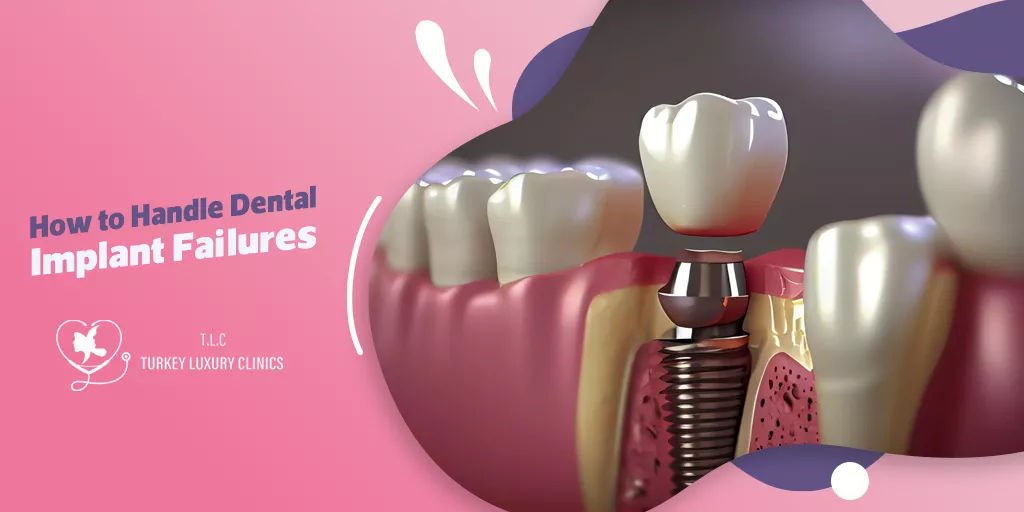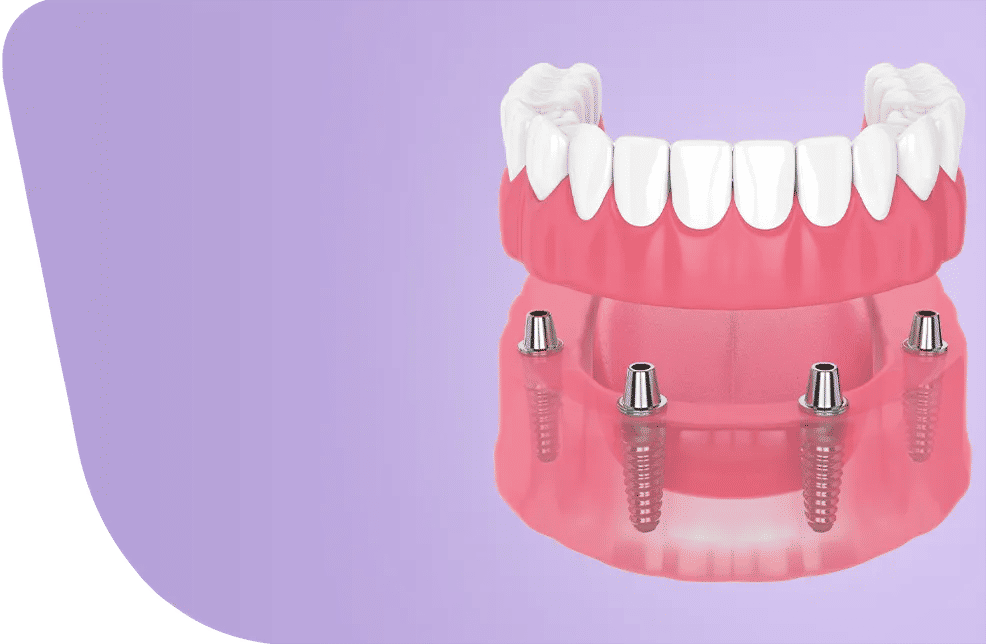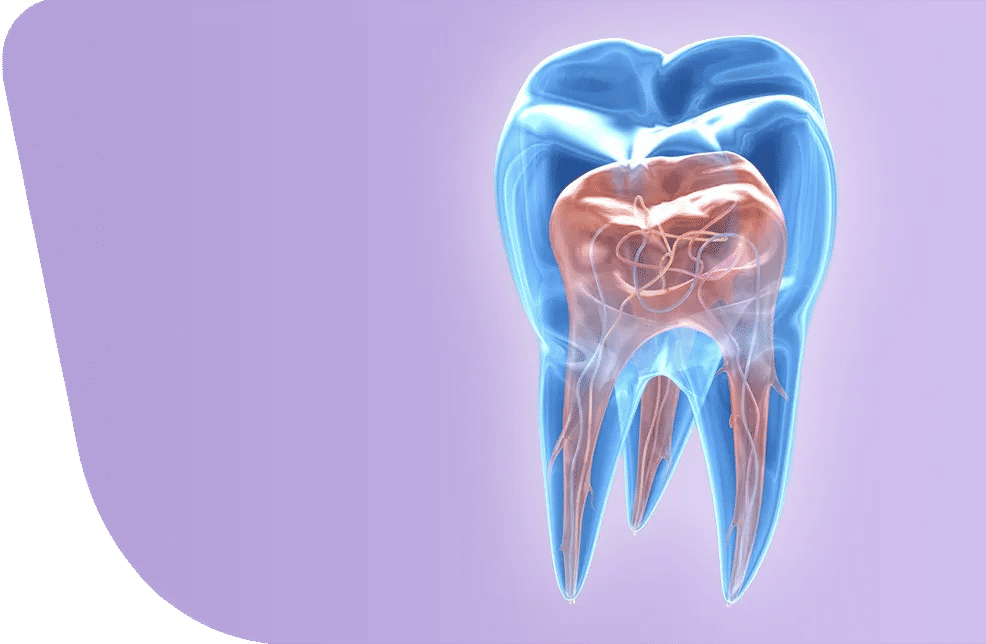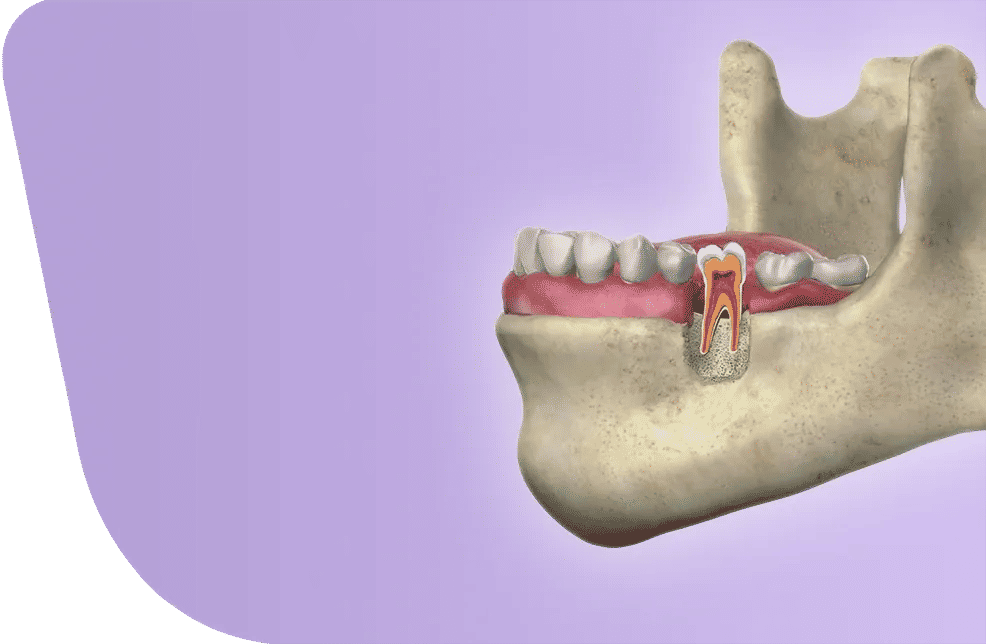- - Dental Implant Failures
- - What are Causes of Dental Implant Failure?
- - What Are the Signs of Dental Implant Failure?
- - What is the Percentage of Dental Implant Failures?
- - How to Avoid Dental Implant Failure?
- - How to Handle Dental Implant Failure?
- - Trust Turkey Luxury Clinics for Safe Dental Implant Surgery!
Have you ever wondered how to handle Dental implants failure? Dental implant failure happens when an implant loses stability, either due to failed bone integration (early failure) or infection, inflammation, or stress over time (late failure). While the dental implant success rate is over 95%, around 3–5% of implants may fail.
At Turkey Luxury Clinics, our experts explain the primary causes of implant failure, the warning signs that should never be ignored, and the most effective ways to manage the condition.
Dental Implant Failures
Dental implant failure occurs when the implant loses stability—either in the early stage, if it fails to properly integrate with the jawbone, or in the later stage, when it deteriorates due to dental implant infection, inflammation, or excessive force.
A dental implant can fail for several reasons, including the patient’s overall health, oral hygiene and post-procedure care, as well as the surgical technique and skill of the dentist.
What are Causes of Dental Implant Failure?
Dental implants have a high success rate, but like any medical procedure, they can sometimes fail. Understanding the causes of dental implant failure can help patients lower their risks and improve treatment outcomes. Below are the most common reasons why implants may not succeed:
1. Lack of Osseointegration
Osseointegration is the process by which the implant fuses with the jawbone. When this doesn’t occur properly, the implant lacks stability and may loosen or fail. Factors like poor bone quality, smoking, or systemic conditions can interfere with osseointegration.
2. Peri-implantitis
This is a type of infection and inflammation in the gums and bone surrounding the implant, similar to advanced gum disease. Peri-implantitis often develops due to poor oral hygiene, plaque buildup, or uncontrolled diabetes, and can lead to bone loss around the implant.
3. Infection at the Implant Site
Bacterial infection can occur during or after surgery, damaging surrounding bone and tissues. This weakens the implant’s support and may cause failure if untreated.
4. Mechanical Complications
Mechanical causes of dental implant failure include issues like screw loosening, implant fracture, or prosthetic failures in dental implant therapy such as broken crowns, ill-fitting abutments, or wear of the prosthetic components.
5. Smoking
Dental implants for smokers are more risky because nicotine reduces blood flow to the gums and bone, slowing down healing and increasing the risk of infection. Studies show that smokers face a much higher implant failure rate compared to non-smokers.
6. Poor Oral Hygiene
Without proper brushing and flossing, bacteria build up around the implant, leading to gum inflammation, bone loss, and eventually implant failure.
7. Inadequate Bone Volume or Density
A dental implant needs strong, dense bone to remain stable. Patients with bone loss in the jaw—due to missing teeth for years or medical conditions—may require bone grafting before implant surgery.
8. Osteoporosis
Osteoporosis is a condition that weakens bone density throughout the body, including the jawbone. A weaker foundation makes it harder for implants to integrate successfully.
For a successful dental implant for osteoporosis the dentist may need to add more bone through bone grafting procedure before implant to support and harden the natural bone allowing for proper implant fusion and healing.
9. Bruxism (Teeth Grinding or Clenching)
Chronic teeth grinding or clenching puts excessive stress on dental implants. Over time, this can cause micro-fractures in the bone or loosening of the implant. Patients with bruxism who need implants often benefit from wearing night guards to protect their implants.
10. Systemic Health Conditions
Various chronic diseases can interfere with dental implant by affecting healing procedure and fusion of implant with natural bone. Dental implants for diabetes, cardiovascular disease, or autoimmune disorders have higher risks of dental implants failure than healthier people. Patients need to discuss with their dentist all solutions and methods available to increase success rate.
11. Allergic Reactions to Implant Materials
Though rare, some patients experience sensitivity or allergic reactions to titanium or other metals used in implants. In such cases, zirconia implants may be considered as an alternative.
What Are the Signs of Dental Implant Failure?
After dental implant surgery, some swelling or mild pain is expected. But certain symptoms should not be ignored, as they may signal dental implant failure or complications. Knowing these signs early can help you protect your oral health and prevent further damage.
1. Persistent Pain: Mild discomfort in the first few days is normal. However, sharp, throbbing, or prolonged pain may indicate dental implant problems such as infection, nerve damage, or failed osseointegration.
2. Prolonged Swelling: Swelling after dental implants usually lasts up to a week. If it continues longer, or the area feels hot, red, and tender, this can be a warning of implant infection or inflammation.
3. Unusual Bleeding: Light bleeding is common right after surgery. But heavy or persistent bleeding, especially when combined with pain or swelling, may point to serious implant complications.
4. Loose Dental Implant: A successful implant should feel stable. If the implant feels loose or shifts while eating or talking, it could mean failed osseointegration (the implant not fusing with the jawbone).
5. Gum Recession Around the Implant: Healthy gums should cover the implant completely. Receding gums that expose the implant post or abutment often signal infection or bone loss, both linked to dental implant failure.
6. Bad Breath or Foul Taste: Persistent bad breath after dental implants or an unpleasant taste may result from bacteria or infection around the implant site.
7. Difficulty Chewing: If chewing remains painful or difficult long after recovery, this may point to implant instability or bite-related implant problems.
8. Numbness or Tingling: Rarely, nerve damage during placement causes numbness, tingling, or “pins and needles” in the gums, lips, or chin. If this doesn’t fade quickly, it should be treated as a serious complication.
What is the Percentage of Dental Implant Failures?
The failure rate for dental implants is low, with most studies reporting an overall failure rate of around 3-5% and a high success rate of over 95%.
Early failures, occurring within the first three months, are less common, around 1-2%, while late failures after this initial period account for the remaining 2-3%.
How to Avoid Dental Implant Failure?
To prevent dental implants failure, maintain rigorous daily oral hygiene, including brushing and flossing, and attend regular dental check-ups for professional cleanings and monitoring.
- Choose a qualified dental implant surgeon to ensure accurate planning, safe placement, and long-term implant success.
- Share your full medical history with your dentist, since conditions like diabetes or heart disease can affect dental implant outcomes.
- Consider bone grafting before implants if your jawbone is too weak or thin to support proper osseointegration.
- Follow post-surgery instructions carefully, including diet, prescribed medications, and oral care to avoid implant complications.
- Maintain excellent oral hygiene by brushing twice daily and flossing once a day to prevent infection around the implant.
- Use an antimicrobial, alcohol-free mouthwash regularly to reduce bacteria and protect gum health around the implant.
- Switch to an electric toothbrush for better plaque removal and easier cleaning of dental implants.
- Attend routine dental check-ups every six months to detect and treat early signs of implant problems.
- Quit smoking, as it slows healing, increases infection risk, and raises the chance of dental implant failure.
- Protect your implants from teeth grinding (bruxism) by wearing a nightguard if you clench or grind during sleep.
- Avoid harmful habits like chewing ice, biting hard objects, or opening packages with your teeth to prevent implant damage.
- Eat a balanced diet rich in calcium, vitamin D, and protein to strengthen your bones and support long-term implant stability.
How to Handle Dental Implant Failure?
If you notice symptoms of dental implant failure, it’s important not to ignore them. Seeking professional help right away can prevent further complications. Here’s how to handle the situation:
1. Consultation: Schedule a consultation with your dentist as soon as possible. Share every concern you have, even if it feels minor, early warning signs should not be dismissed, as they can quickly worsen if left untreated.
2. Diagnosis: During your visit, explain your symptoms in detail, including when they began and how they have changed. Your dentist may recommend an X-ray or CT scan to evaluate the implant and surrounding bone.
3. Treating Failed Dental Implant:
While in some cases failing implants can often be repaired by cleaning and fixation, however in other cases the failed implant will need to be removed completely and replaced in another dental implant procedure, you may need a period of recovery, bone grafting, or treating the underlying cause before repeating the implant..
The treatment steps vary by the patient’s condition, cause of failure, and severity of the case:
- Early-stage implant failure (soon after surgery): This happens in the first few months if the implant does not properly fuse with the jawbone. Common causes include poor bone quality, infection, or habits like smoking.
- Late-stage implant failure (after initial success): This occurs when an implant that seemed stable at first starts to loosen over time due to gum infection (peri-implantitis), bone loss, or excessive pressure on the implant.
Steps of treatmenting a failed dental implant involves identifying the cause and then removing the implant, often combined with a bone graft to rebuild the jawbone, followed by a healing period before placing a new implant.
4. Emotional Impact: Dental implants failure can feel frustrating and discouraging. Stay focused on the facts, ask your dentist about all available solutions, and discuss the best timeline for re-implantation. While dental implants have a high success rate, it’s important to remember that, like any medical procedure, there is always a small risk of failure.
Trust Turkey Luxury Clinics for Safe Dental Implant Surgery!
Trust Turkey Luxury Clinics for Safe Dental Implant Surgery
Risks may exist with any medical procedure, but choosing the right clinic makes all the difference. At Turkey Luxury Clinics, we guarantee safe and efficient dental implant treatments tailored to your needs. Our team includes some of the top dental implant surgeons in Turkey, with years of experience in handling different cases and procedures. From consultation to recovery, we provide full support, personalized care, and continuous follow-ups to ensure long-lasting results.














.webp)
.webp)
.webp)
.webp)

